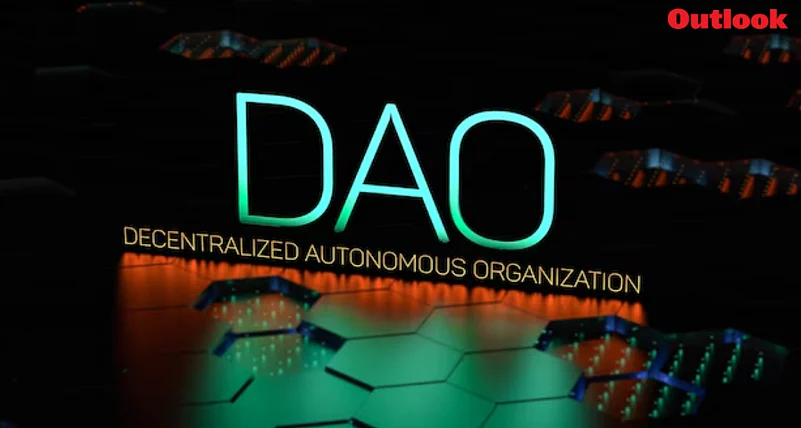In a decentralizing and AI-aided new world that seemingly remakes the essence of power and governance, a provocative question arises: What if machines, rather than humans, actually govern systems that are supposed to be trustless and leaderless? Welcome to the new A-DAO world: decision-making is fully algorithmic.
Beyond Human Hands: The Rise of Machine Governance
Traditional DAOs (Decentralized Autonomous Organizations) are yet another step toward decentralization of hierarchically imposed order. It allows groups of people to coordinate amongst themselves without interference from any central authority, relying on transparent protocols embedded in smart contracts. But, human participation is required in these systems-voting, proposals, and consensus. Autonomous DAOs take this one step further. Artificial intelligence thereby does not only contribute to governance; it is governance.
The jump from a participatory DAO to an autonomous DAO implies an entire metamorphosis in the understanding of agency. Under such a circumstance, AI-driven agents decide on treasury allocations, review community proposals, and modify operational parameters without recourse to human interaction. These are not simply automations; these are living, adaptive systems that make executive decisions on behalf of the collective.
From Codified Intent to Adaptive Intelligence
The first DAOs worked out from clear rigid rule-sets or vending-machine-like outcomes based on inputs. If a user chose to vote in one way or submitted a transaction, the DAO responded in accordance with the code. An AI gives way to adaptive learning—from the static logic to dynamic interpretation. Autonomous DAOs can look into past governance behavior, project outcomes, and arrive at weighted decisions on the basis of probabilistic reasoning.
Visualize a DAO for managing a digital ecosystem. The AI would not need to wait for human proposals for budgets or resource uses; instead, it would scan all metrics, pinpoint the underperforming sectors, and reallocate funding by itself. It learns as time goes by from the outcomes and gradually improves its strategies as a human strategist would—with the absence of any bias or fatigue or ego.
Not that it will ever make perfect decisions, but it will make those without any human bottlenecks. And that both is a great promise and a great peril.
Trusting the Trustless: Can We Trust Machines?
One common explanation for DAOs is that they are "trustless"—users don't have to trust other users because the algorithm provides a level playing field. Autonomous DAOs place another kind of trust, though: not in institutions or people, but in machines. We must question: Who designed the AI? What is it being trained on? Can it be manipulated? And most importantly, How do we hold an AI accountable?
The paradox is vivid. The more self-governing a DAO is, the more opaque its reasoning might be. AI systems, particularly deep-learning-based systems, tend to be black boxes. If a system of that kind decides to refuse a transaction, redistribute a leadership role, or even wind down a project, how do participants protest the decision? Who informs them why it was made?
Unaccountable autonomy can lend itself to an erosion of trust in the community—even in systems designed to operate without it.
Ethics on the Frontier: When Artificial Intelligence Decides What's Fair
Another new problem is the ethical course of autonomous systems. DAOs, when humans control them, reflect collective values. But under AI control, such values have to be learned or programmed. What should an autonomous DAO do when confronted by a moral dilemma? Should it optimize profitability on the cost of sustainability? Cohesiveness by the community on the cost of operational efficiency?
These are not technical questions per se; they are philosophical ones. A morality-free AI that governs through only statistical optimization may make poor conduct worse unintentionally. Conversely, one trained on a very limited dataset of ethics can create stringent, even dictatorial, regulations under the banner of justice.
Making ethical decision-making a part of autonomous DAOs is still the biggest challenge. It needs interdisciplinary collaboration—engineers, ethicists, economists, and community people need to all pitch in."
The End of Participation—or Its Evolution?
Critics of autonomous DAOs argue that giving power to machines goes against the very nature of decentralization: human participation. If AI is making all the decisions, what is left for the community to do?
But this view might be losing the big picture. Engagement does not disappear; it changes. Rather than quibbling over each deal or offer, humans set the vision, parameters, and boundaries. The AI executes, learns, and adjusts within those limits. Communities shift from managers to meta-designers, curators of values rather than operators of systems.
It라이브 바카라 akin to shifting from steering the car to programming the autopilot. You’re still in control—but at a higher, more strategic level.
A Future Neither Dystopian Nor Utopian
The dream of autonomous DAOs is attractive. Machines running complex systems without corruption, burnout, or self-serving interests. Communities liberated from the drudgery of bureaucracy. Resources allocated by need and evidence, not popularity or politics.
But such a future is not guaranteed to be utopian. Without proper design, regulation, and foundation in human values, autonomous DAOs could become technocratic states—productive but inhuman, powerful but unaccountable.
The truth likely lies somewhere in between. Autonomous DAOs are not replacements for human governance; they are new instruments within it. Tools that can help us scale coordination, reduce friction, and unlock collective intelligence—if we’re brave enough to build them thoughtfully.
Conclusion: When the Code Writes the Constitution
We are entering an era in which the line between technology and governance is vanishing quickly. Self-governing DAOs are not science fiction—they are a work in progress. They shake our assumptions about leadership, trust, and community. They invite us to imagine systems that function not on charisma or consensus but on logic, learning, and code.














